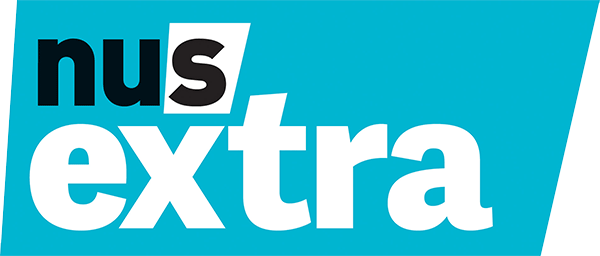Get student council tax discounts
 Local
authorities control council tax support. Each one decides what support
to offer its residents. Contact your local authority to ask what
discounts and benefits are available in your area.
Local
authorities control council tax support. Each one decides what support
to offer its residents. Contact your local authority to ask what
discounts and benefits are available in your area.
-
Only live with students?
If you're a full-time student living alone or
with other students you don't need to pay council tax, whether there's
two, three or even 10 of you living together.
-
Live with a non-student?
If a student lives with a non-student, the
student is disregarded, so council tax could be reduced as if only a
single person lives there, meaning a potential 25% reduction. But this
poses a moral dilemma.
Is it fair for the non-student to pay the entire 75% due, or should the student contribute?
From the student's perspective, they wouldn't pay
anything if their housemate was also a student. From the non-student
perspective they’d only pay 50% of the bill if their housemate was also a
non-student.
Our suggestion is to split the 25% difference between the two, so the non-student pays 62.5% and the student 12.5%.
-
Live with more than one non-student?
Here, while the student again is exempt, because
there are two non-students the house has to pay the full 100% charge.
So again, it gets complex. The student hasn’t
added to the council tax bill, but nor has their presence resulted in a
discount.
So again, you'll need to decide if and how you
want to split it, though the legal stance is that full-time students
aren't liable for the bill if non-students can't or don't pay. See Council Tax Discounts.
You need to apply to your local council for the discount, as it isn't deducted automatically. To apply, visit
Gov.uk.
Nab free cash to study
Whether you're studying full or part-time, there may be a
grant or a free course to help. They're dependent on your circumstances
so it may not be easy to get one, but there's certainly no harm in
trying.

Here are the main ones to get you started - see the Education Grants guide for more.
-
Educational Grants Advisory Service:
This offers students, especially disadvantaged
ones, guidance and advice to help secure funding for education and
training. Its site, part of Family Action, has a searchable database of over 30 educational trusts.
-
Scholarship search:
There are some nifty search tools on the Scholarship Search and Student Cash Point
websites, including bursaries, scholarships and award funding for
students. You'll be surprised at what's available! Some are very
specific - aimed at specific religions, locations, parental occupations
and many more.
Don't get the 'spend it before it goes' bug
When loan cash arrives, it's all too easy to celebrate with a
big blow-out. It may be tempting, but don't do it. Instead, to help you
budget, use the free interactive
Student Calculator tool from education charity Brightside, and read the budgeting tips box below.
Get the biggest 0% overdraft student account
 Big banks love tempting students with 0% overdrafts and free
stuff, then relying on their custom for decades to come. Read on for
five key points to help choose your student account.
Big banks love tempting students with 0% overdrafts and free
stuff, then relying on their custom for decades to come. Read on for
five key points to help choose your student account.
-
Go for the biggest 0% overdraft deal possible.
Most students will need an overdraft while at uni, so make sure you aren't charged for it.
Aim to get the biggest amount that will last as long as possible.
Some providers offer 'up to £3,000', but how much you get depends on you and your circumstances.
-
Never go over your overdraft limit.
This is a lifelong rule. Go beyond your limit and charges shoot up, leaving you in a vicious cycle that's tough to escape.
-
 Beware: you will be credit scored.
Beware: you will be credit scored.
When you apply for any debt product, including an account with an overdraft,
the lender will credit score you to decide how desirable a customer you are. See the Credit Rating guide for more.
-
Don't base your choice on the closest branch or ATM.
You can withdraw cash free of charge from any
bank's ATM and almost every bank offers online access.
So which branch is nearest has little relevance
for most able-bodied students. To compare, just examine what's on offer
and go for the best deal.
-
Don't just go for the one with the best freebie.
Calculate the value of the freebie, and then
compare that account's overdraft with the best on offer. Would the
interest charged on the difference be more than the cost of the freebie?
One offer right now is worth getting for its freebie - Santander is
giving a four-year railcard (usually costs £120) with it's student
account - see full details.
-
You'll need to apply for any overdraft increases.
Students must apply for overdraft increases on certain accounts, even where the max rises each term or year. See the MSE News story for full info.
See the Student Accounts guide for the full list of top bank accounts, plus masses of tips to help you choose.
Also arm yourself with knowledge of how interest works with the Interest Rates: Everything You Wanted To Know But Were Afraid To Ask guide. Get your head around the basics so you aren't stung in the future.
Don't overpay tax on any jobs you do
 If you work during term time or over the summer to keep you afloat, make sure you're paying the right amount of income tax.
If you work during term time or over the summer to keep you afloat, make sure you're paying the right amount of income tax.
Students are taxed just like anyone else. If you earn
less than £10,000 a year, you shouldn't pay any tax - the same for
someone who is 20, 30, 40 or 50.
If students are employed (as opposed to self-employed)
and taxed via Pay As You Earn (PAYE), they are automatically charged tax
on earnings, so may need to reclaim it at the end of the year.
If you're a student and total earnings for the 2014/15 tax year come to less than £10,000, and you paid tax, see the HMRC website for how to apply for a refund.
Check yours: To see what you should be paying if you earn over the threshold, use the Income Tax Checker. It's also handy for working out what your take home pay will be after you graduate. See full 2014/15 Tax Rates.
Grab a student discount card
An NUS Extra card costs £12, but it'll get you discounts online and in store with over 160 retailers for a year.
It includes offers such as 10% off Co-op groceries at over 3,200 participating stores (check
here for stores excluded from the discount). If you'd usually shop there, and spend £120 a year or more, it's a winner.
Other discounts vary, but are generally about 10-20%
(some are as high as 50%), and include Asos, McDonalds, Odeon, Amazon,
16-25 Railcard, Superdrug and many more.

To get an NUS Extra card, apply online on the NUS website. Check the full list of NUS Extra discounts
first to make sure you'll use it, and check individual offer terms
before you go. Cards are valid for 12 months from date of purchase.
Do the maths. It's worth doing some
quick sums to see if it's worth it for you. Eg, if you only used
discounts worth 10%, you'd need to spend £120 or more over the year at
relevant retailers for the card to be worth it.
Get a TV licence refund for summer hols
 A colour TV licence is £145.50 for a year (or £49 if you're
lucky enough to have a black 'n' white set). But if you've a full three
months left on your licence at the end of the academic year and won't
use it before it expires, you can get a refund for this.
A colour TV licence is £145.50 for a year (or £49 if you're
lucky enough to have a black 'n' white set). But if you've a full three
months left on your licence at the end of the academic year and won't
use it before it expires, you can get a refund for this.
To apply, complete the online application form on the TV Licensing website. Don't forget to update your address if you move house.
-
Do students need a TV licence?
In most cases, yes. Your parents' TV licence
won't cover you unless your permanent registered address is with them,
and you don't have your receiving equipment
plugged into an aerial or a mains socket to receive the picture. Even if
you're only watching TV on your laptop, you'll need one.
-
Any exceptions?
If you're ONLY watching via BBC's iPlayer or
other internet broadcast systems which aren't being transmitted live,
you don't need a licence. But if watching live
broadcasts you'll need a licence as normal.
You don't need one if you're only watching DVDs
or gaming, but you need to fill in an online form for this.
-
What if in shared accommodation?
If in halls of residence you'll probably be
covered for communal areas, but not your room;
do check though. If in a shared house and with a
joint tenancy agreement, you'll only need one licence for the
household. But if you've separate agreements, you'll need one for your
room.
Watching TV without a licence is against the law. Fee
dodgers face prosecution and a fine of up to £1,000. See the TV Licences guide.
Find the cheapest gas & elec to save £100s
If you aren't living in halls, it's likely you'll have to pay
for gas and electricity on top of rent. It's possible to make hefty
savings simply by switching provider.

-
You've a right to switch and save on energy - even when renting.
When renting, you're free to switch if you pay the energy company directly
(rather than your landlord). Also check your tenancy agreement -
yet even if your contract bans switching, challenge it as it may be unfair.
See Renting Tips for full help.
Our free-to-join Cheap Energy Club
is designed to keep you constantly on the cheapest tariff. It'll tell
you when you can save and will even help you switch. Plus you'll often
get £30 dual fuel cashback if it can switch you - there really is no
excuse for paying more than you have to.
-
Grab cashback or wine on top.
If on a standard tariff, it's possible to save
over £200 a year on your annual bill by switching, and even grab
cashback or a free case of wine on top. For a full how-to, see the Cheap Gas & Elec guide.
-
You don't need to know how much your bill will be.
Even if you haven't a clue what you'll be paying,
you can still enter your house size on some of the comparison sites and
they'll estimate for you.
-
Watch out for exit fees.
If you're on a longer fixed tariff or thinking of signing up to one,
be aware that suppliers can charge exit fees if you leave before your contract term,
typically about £25 per fuel. So always check and factor this in.
-
On a prepay meter?
You definitely haven't got the cheapest deal. To
save, first try switching to a credit meter.
If you can’t, do a comparison to find the
cheapest prepay provider (again, comparison sites will often be able to
estimate your usage if you're unsure) and you could save £100s. See the Prepaid Gas & Elec guide.
Don't buy new books - rent, borrow or buy secondhand instead
 At
the start of a new term, it's likely you'll be given a list of books
you'll need over the year. Depending on your course, some textbooks can
really break the bank and leave you out of pocket.
At
the start of a new term, it's likely you'll be given a list of books
you'll need over the year. Depending on your course, some textbooks can
really break the bank and leave you out of pocket.
The uni library is likely to have the texts you need, but in
the first few weeks of term there's usually a rush on them, meaning you
could be left waiting. So, instead of rushing out and buying them new,
see if the the local library has a copy. At the very least you can take
time assessing how often you'll need it.
Alternatively, scout around campus, department noticeboards and even eBay (see our eBay buying tips
for help) for anyone selling books they no longer need. If no new
editions have been released since they bought them last year, you're
getting exactly the same book, possibly just with a worn-in look.
Charity shops are also good for cheap textbook hunting, especially in
your university town.
And thanks to the internet, consider year-long book rentals. Sites like CourseSmart will loan you the e-version of textbooks for 360 days, for up to 50% less than buying the text new.
 But if you do decide you need a brand new copy, don't buy
without doing a little research. Always start by doing a comparison -
our MegaShopBot tool takes the
leg work out of this for you, searching a host of price camparison
websites in seconds, finding you the cheapest price.
But if you do decide you need a brand new copy, don't buy
without doing a little research. Always start by doing a comparison -
our MegaShopBot tool takes the
leg work out of this for you, searching a host of price camparison
websites in seconds, finding you the cheapest price.
Ensure parents pay their share
Your parents may decide to give you money to help while
you're at uni,
if they can afford it. But for most, the amount of
maintenance loan you get depends on their parents' income; those who
come from wealthier homes get a smaller loan.
This is because your parents are expected to
contribute. If you don't get the full loan, while there's no way to
force them to pay, and they're not legally required to give you money,
it's well worth having the conversation with them in advance about
whether they'll contribute.
Show this to your parents: This can
be a thorny area, yet their contribution can make a big difference while
you're studying. Broach the subject sooner rather than later, and feel
free to show them this tip if it helps.
Bag free office software
 If you're kitting out a laptop, PC or Mac for uni, you can
save on software by downloading the legit free equivalents. There are
loads of different options available.
If you're kitting out a laptop, PC or Mac for uni, you can
save on software by downloading the legit free equivalents. There are
loads of different options available.
Here are a few to get you started:
-
For typing, spreadsheets and presentations:
The LibreOffice
software suite includes a word processor, spreadsheet,
presentation, database and design package. Handily, it's compatible
with many Microsoft documents, and is available for PC, Mac and Linux.
-
For image editing:
If you're after something for basic cropping and editing,
Paint.net is easy to use and is PC compatible. For a more advanced photoshop equivalent, The Gimp is a powerful tool with free add-ons and is compatible with PC and Mac, while Inkscape is handy for scalable vector graphics and is available for PC, Mac and Linux.
-
For music and videos:
One of the most widely compatible media players available, VLC Player can cope with pretty much any music or video format you throw at it. For recording, Audacity lets you add effects and create soundscapes from scratch. Again, both are available for PC, Mac and Linux.
Always check any software you put on your computer is
suitable and compatible with your existing set-up first. For full info
and loads more, and how to get student discounts on paid software, see
the Free Office Software and Free Antivirus Software guides.
Free eBay tool uncovers hidden local bargains
 If you're kitting out your student digs with larger items,
eg, a sofa for an unfurnished lounge or a TV for your new room, pick-up
only items on eBay are often cheaper as there are fewer bids.
If you're kitting out your student digs with larger items,
eg, a sofa for an unfurnished lounge or a TV for your new room, pick-up
only items on eBay are often cheaper as there are fewer bids.
To help uncover 'em, we've built a Local eBay Deals Mapper tool. Just pop in your postcode, tell it how far you're willing to schlep, and it instantly trawls eBay* for local hidden gems.
Always double-check the seller's location, and stay safe
when collecting. Go with a friend, or if this isn't possible, tell
someone where you're going and arrange to contact them afterwards. Take a
mobile phone, and stay on the doorstep if you can. See full safety tips.
Learn to haggle
 Many places will give you a discount if you flash your student or NUS Extra
card. Yet even if they don't offer a student discount, why not ask for
one? Many places will help you out if you haggle. It's chutzpah time – never buy without a try!
Many places will give you a discount if you flash your student or NUS Extra
card. Yet even if they don't offer a student discount, why not ask for
one? Many places will help you out if you haggle. It's chutzpah time – never buy without a try!
What's the worst that can happen? They say no. They won't chuck you out of the shop or punch you in the face!
Even if you weren't born with the gift of the gab, it's easier than you think. See the How to haggle successfully guide for tips, and give it a go. After all:
Hunt for hidden student discounts
 Always
ask for student discounts when you're out and about. These often aren't
advertised, but several places still offer them even if you don't have
an NUS Extra card.
Always
ask for student discounts when you're out and about. These often aren't
advertised, but several places still offer them even if you don't have
an NUS Extra card.
You'll usually need to show another form of student ID,
so it's worth bringing a card that has your name, date
of birth and uni along when you're out. Share your finds in the Student discounts discussion.
-
Yo! Sushi
Offers students 25% off everything from Tue-Fri and on Sundays. To get it, join its Love Club on the Yo! Sushi
student offer page, then either print the voucher or show it on your
phone or laptop with valid student ID. The offer's ongoing; you can use
it as many times as you like. See its offer page for full terms.
-
McDonald's
Offers a free McFlurry original, hamburger or
cheeseburger when you buy an Extra Value Meal and show valid student ID.
The offer's valid till 31 Aug 2015. There's one offer per person, per
card, per visit. Full terms on McDonald's site.
-
New Look
Gives 10% off in-store when you show valid
student ID,
or online when you enter your student number at
the checkout. It's valid on full-price items (excludes Limited Edition),
and is currently ongoing. See the New Look site for more.
-
Foyles
Gives students 10% off in-store, or 5% off
already-discounted items online. To get the store discount, sign up
in-store with valid student ID to get a Foyles Student Card. For the
online discount, email students@foyles.co.uk with your name, course and
uni to get a code. Valid until 31 Aug 2015. See Foyles for terms.
For more student discounts that don't need an NUS Extra card, forumites recommend
MyUniDays.
It's free to register on, and once it's verified your student status,
gives codes for a range of ongoing online students discounts via its
site, including 10% off Dorothy Perkins, 10% off Waterstones and more.
Student fees shake-up only hits those who started in or after Sept 2012
 The
student loan system changed for new undergrads who started in or after
September 2012. Any students who started before then stay on the
previous system. If that's you, and you started in 2011/2012, you'll
be paying £3,465-a-year max (2014/15 rate) in tuition fees, though it'll
go up with inflation in future years.
The
student loan system changed for new undergrads who started in or after
September 2012. Any students who started before then stay on the
previous system. If that's you, and you started in 2011/2012, you'll
be paying £3,465-a-year max (2014/15 rate) in tuition fees, though it'll
go up with inflation in future years.
But for people starting a course now, all institutions
have been allowed to charge up to £6,000 and many will charge up to
£9,000, providing they make extra provisions for bursaries for poorer
students. See the Student Loans Mythbusting guide for more.
Do a proper budget
 This
is where you match up money coming in with what's going out. It's
incredibly important, or you may have a great first week splashing the
cash, but spend the rest of term struggling to survive.
This
is where you match up money coming in with what's going out. It's
incredibly important, or you may have a great first week splashing the
cash, but spend the rest of term struggling to survive.
Knowing how much income you'll have is essential. Most
will come from maintenance loans, grants, any bursaries or scholarships,
part-time work pay and parents' contributions. But no matter where the
money comes from, the golden rule is to NEVER spend more than your
income.
Of course, right now it's tough to work out exactly what
you'll spend on books, transport, course equipment and partying. Once
you know your situation, try the free interactive Student Calculator tool from education charity Brightside.
Don't forget other costs, like a TV licence or toilet roll. They aren't fun to buy, but are even less fun if caught without 'em.
Treat yourself to a makeover: Nope, we're not talking face packs and cucumber slices. For the biggest savings, give yourself a full Money Makeover.
This overhauls your finances, from mobile bills to contact lenses.
It'll take time to work through, but it's time well invested.
A company's job is to make money from you
 As the year goes on, the costs of starting higher education
quickly add up. So before you shell out on extras, don't forget: a
company's job is to make money from you.
As the year goes on, the costs of starting higher education
quickly add up. So before you shell out on extras, don't forget: a
company's job is to make money from you.
Don't swallow companies' promises and marketing. However well
you budget, you will have to spend on tuition fees, books, transport,
living expenses and, of course, socialising.
So always remember these companies want your cash and look with a sceptical eye; you'll make better decisions.
Get free cash to study in Europe
 If
you want to study part of your degree in one of 33 participating
European countries, grants are available from the British Council as
part of the Erasmus scheme.
If
you want to study part of your degree in one of 33 participating
European countries, grants are available from the British Council as
part of the Erasmus scheme.
If you've got the travelling bug, this is a handy way to
continue studying and go globetrotting at the same time. Countries to
choose from include Austria, France, Italy, Portugal and Spain. See
Erasmus for the full list.
C'est gratuit: There are masses of online resources to help you learn a language for free if you know where to look, including
BBC Languages and the OU LabSpace. See Learn A Language Free for the full list.
Use less energy
 It
isn't just which company you pay, but how much you use. Cutting energy
costs is a mix of big and little things. A few small changes will help
bring your bill down.
It
isn't just which company you pay, but how much you use. Cutting energy
costs is a mix of big and little things. A few small changes will help
bring your bill down.
Turn down the thermostat and dig out that knitted jumper
from your gran. Switch off lights when leaving a room, use energy saving
lightbulbs, defrost the fridge and check it isn't on too high, and
don't leave electricals on standby.
For more info, read the Energy Saving Hunt and see the Energy Saving Trust website. One MoneySaver suggests:
"A good tip for students studying this winter who are finding gas bills a struggle: study at your local library."
Don't forget water bills
Again, if you aren't in halls, check with your landlord to
see if your water bill is included in your rent. If not, remember to
budget for it, using the table in the Water Bills guide for a rough indication of how much to expect.
Don't assume student insurers are cheaper
Home contents insurance for a student house isn’t always easy
to get. This is often because most policies like to cover the house,
not the person, making it tricky if you've flatmates. Yet there are a
few tricks to get round this:

- Check parents' cover.
If your parents have home insurance, it may automatically cover you
under the 'temporarily removed from the home' section while you're a
student. The cover only applies while in your accommodation though; ask
them to do a quick check.
If you need cover for any mobiles or laptops, or
items you normally wear or carry away from your home, your parents could
also add the ‘all-risks’ or 'unspecified personal possessions' section
to their policy, which specifically covers your stuff while it's out of
their home.
Handily, many policies allow this, and it's worth checking if your parents' insurance already includes this.
-
Don't assume student policies are cheaper.
Start by comparing prices of student policies
with standard policies. Benchmark the best price, then compare it to
the best buys in the Home Insurance guide to help you find the cheapest for your needs.
There are specialist student insureres do tend to
be pricier than standard policies but one advantage of them is that
they give wider cover. For full info, see shared accommodation home insurance.
-
Lock your doors.
If you're in shared accommodation, your insurance
won't cover you for theft unless there's been a violent or forced
entry. So always make sure you lock your room's door when you leave,
even if you're just popping out briefly.
-
Check if your bike's included.
If you're bringing a bike, your contents
insurance may cover it. Always check though, and find out how much extra
it is to add if not.
Slash car insurance costs
 Finding affordable car insurance can be a nightmare,
especially for younger drivers – the average for a 17-22 year old is
£1,096. The Young Drivers' Car Insurance
guide has a step-by-step system to slice off every spare penny for
under 22s, but if you're older and heading to uni, see our normal Car Insurance guide.
Finding affordable car insurance can be a nightmare,
especially for younger drivers – the average for a 17-22 year old is
£1,096. The Young Drivers' Car Insurance
guide has a step-by-step system to slice off every spare penny for
under 22s, but if you're older and heading to uni, see our normal Car Insurance guide.
-
Do you really need it?
Bringing an unused car to uni can be an expensive and unnecessary hindrance,
so consider the alternatives. See the public transport box.

-
Pay when or how you drive.
Specialist 'pay when you drive' and 'pay how you
drive' schemes are well worth checking to see if they undercut
comparison site quotes. With these, a GPS or tracking device is fitted
to your car, so what you pay depends on your mileage and time or driving
style.
-
Specific young driver brokers.
While comparison sites are very good for those
with normal situations, for others they can underperform, so check
specific young driver brokers separately (full listings in the guide).
-
Learner driver insurance.
If you're a learner, it often means being added
to parents' or friends' car insurance as an additional driver which can
up the cost, and put no-claims bonuses at risk. Yet you can get specific
policies just for provisional drivers. Find full info on all these and
more in the guide.
-
Don't forget to update your address.
You can usually keep your parents' address for
correspondence if you want, but you need to tell your insurer where the
vehicle's usually kept.
-
If you have a part-time job, tell 'em.
If you forget to declare it – even if you don't use the car to get to work – it could invalidate future claims.
-
If your car's uninsured while at uni, SORN it.
All cars need to be insured unless you declare
it's off road. The only way out's to apply for a SORN (Statutory Off
Road Notification) declaring your car won't ever be driven - but you
must park it on private land, not on the street. See Gov.uk.
Never get someone, such as one of your parents,
to add their name as main driver on your car instead of
you. This is called 'fronting' and is fraud, and can lead to
prosecution. Don't do it.
Battle your mobile bill
 If you regularly face a palpitation-inducing mobile phone bill, there's a mass of tips 'n' tricks to help.
If you regularly face a palpitation-inducing mobile phone bill, there's a mass of tips 'n' tricks to help.
-
Pick the right contract.
Use your bills from the last few months to
pinpoint your average usage for calls, texts and data. Then use this to
find the cheapest tariff for your needs. Websites Billmonitor*, MobilePhoneChecker* and MoneySupermarket* let you compare quickly. See Mobile Phone Cost Cutting for the full step-by-step guide.
-
Haggle down contract costs.
If you'd rather not change network, this can
still yield big savings. When you're near the end of your contract, call
'em and ask for the best deal possible - not just on your network, but
any out there. See the Mobile Phone Contracts guide for tips on how to give your haggle some chutzpah!
-
After an iPhone or Samsung Galaxy?
These aren't MoneySaving, but you can pay less
and get a shorter contract if you know where to look. To quickly compare
tariffs, use the tools in the Cheapest iPhone and Cheapest Samsung Galaxy guides.
Split your train tickets
 This
is the big trick everyone should know. Instead of buying tickets for
the whole journey,
bizarrely, buying separate tickets for its constituent parts
can slash the price – even though you're on exactly the same train.
This
is the big trick everyone should know. Instead of buying tickets for
the whole journey,
bizarrely, buying separate tickets for its constituent parts
can slash the price – even though you're on exactly the same train.
It's perfectly allowed within the National Rail
Conditions of Carriage, and has been confirmed by the Association of
Train Operating Companies (ATOC). The only rule is that the train must
call at the stations you buy tickets for.
Savings can be massive; it depends on how long your journey is,
but we managed to shave over £200 off a return ticket from London to Durham using this method.
Free TicketySplit tool to find split tickets
Our revolutionary new TicketySplit
tool is designed to help you do this. Tell it your journey, and it'll
tell you where to split and the saving. This unique tool splits advance
tickets as well as on-the-day tickets - often where the supersonic
savings are.
Currently, the tool doesn't cover returns, only advanced and 'today' single tickets. See Split Ticketing tips for a full how-to.
Taking a break? Work out what it'll cost
 If you're currently studying, but are thinking of taking a year out, make sure you know how much it'll cost you.
If you're currently studying, but are thinking of taking a year out, make sure you know how much it'll cost you.
If you're working for part of your year out then you need
to be aware that you may pay tax. Earn more than £833 in a month, and
you'll be taxed. However, if you only work six months of the year, you
won't reach the £10,000 tax allowance, so you'll need to apply to HMRC for a rebate. If you're not sure whether you should have paid or not, use our tax calculator.
If you're going overseas, budget for your trip - and
don't forget travel insurance. Many insurers offer specific backpacker
policies - take a look at Direct Travel*, Insure and Go*, Direct Line and Virgin Money*, which cover you for extended periods out of the UK, whether you're backpacking or living in luxury.
If you have plans to work abroad or take part part in
skydiving, shark cage diving or other risky fun, check with the insurer
that its policy will cover you.
Create your own Amazon bargain basement page
 Amazon
often offers 75%-off and better reductions, but it directs people to
other areas, sending them to higher profit margin products instead. Yet
there's a geeky way to manipulate Amazon's links to show all
heavily-reduced bargains.
Amazon
often offers 75%-off and better reductions, but it directs people to
other areas, sending them to higher profit margin products instead. Yet
there's a geeky way to manipulate Amazon's links to show all
heavily-reduced bargains.
All you need to do is fiddle with Amazon web addresses to bring up lists of knock-down prices, such as 75%+ off kitchenware* and 70%+ off beauty*.
As it's a faff to do this yourself, we've made the Amazon Discount Finder
tool. It lets you creates your own super-specific sub-department pages
in seconds, where you choose the discount and if you want free delivery.
Don't assume Amazon's always cheapest though. Use the MegaShopBot
tool to quickly see if it's cheaper elsewhere. It trawls the internet
to auto-search for the best price across a huge range of shopping
comparison sites.
Students get 10% off clothing for a YEAR, 5% off music, books, etc. If you've an NUS Extra card, log onto the NUS
website for a unique reusable Amazon code giving year-long discounts
such as 10% off fashion or 5% off books, music, DVDs, beauty and more.
Quickly turn old mobiles into cash
 A
mass of companies offer to recycle your mobile for money. This is a
really quick 'n' easy way to make extra cash if you've old handsets
lying around.
A
mass of companies offer to recycle your mobile for money. This is a
really quick 'n' easy way to make extra cash if you've old handsets
lying around.
Once you agree to
sell, you're even sent a freepost bag for it. To quickly find the best
payer for your phone's make and model, use MSE's MobileValuer tool.
It also works for other gadgets, including games consoles,
iPods and more. Remember to factory wipe your devices and remove
personal information before sending them off.
Free festivals, museums & art galleries
 If you're after live music on the cheap, the Free Festivals
guide has full listings of the top gigs nationwide. In it, you'll find
totally free festivals across the UK, covering everything from rock and
jazz to carnivals and outdoor theatre.
If you're after live music on the cheap, the Free Festivals
guide has full listings of the top gigs nationwide. In it, you'll find
totally free festivals across the UK, covering everything from rock and
jazz to carnivals and outdoor theatre.
You'll also find info on how to get into the big paid festivals for free, including the latest volunteer schemes.
Alternatively, the
Free Museums and Art Galleries
guide lists venues across the UK on everything from forensic science to
footie. Use 'em for research, entertainment, or even an unusual date on
a budget (don't forget your restaurant vouchers!)
Find 'em near you: To find your
nearest at a glance, click on your area on the in-guide maps for full
listings of venues in your area, plus opening times and what to expect
on the day.
Don't chuck best-befores away needlessly
 Do you know the difference between a best-before and a
display-until date? If not, it's likely you're binning a lot of food
unnecessarily.
Do you know the difference between a best-before and a
display-until date? If not, it's likely you're binning a lot of food
unnecessarily.
To help, we've a free printable Food Saving Memo. Stick it on the fridge and check before you chuck.
If you need inspiration on turning last night's leftovers into a banquet, see the Using up leftovers forum discussion for ideas.
Not all debts are the same
It's easy to think "I've got to get a student loan, why not
borrow a little more?". But you need to understand how special student
loans are.
Not all debts are the same, and no other loan only needs
you to pay if you're earning enough. With others, it'll never go away.
They'll chase you even if you can't afford it, and the interest is
higher and will multiply at speed. Remember:
Some debts, like student loans, are much better than others. Be very careful taking any other form of borrowing.
Sadly in the UK, students are educated
into debt but never
about
debt. Many in authority concentrate on telling students to avoid debt –
which is impossible – rather than focusing on avoiding bad debt.
Educate yourself – see Good Debt, Bad Debt for how it works.
Ditch your spending demons: Use the free Demotivator
tool to instantly see the real cost of your non-essential spending,
from mags to chocs. Then print and stick the results on your wall to
help you stop buying 'em.
Try the supermarket downshift challenge
 This is a quick 'n' easy way to make decent savings on your
grocery shopping, particularly if you're still just buying big brands
you're used to at home.
This is a quick 'n' easy way to make decent savings on your
grocery shopping, particularly if you're still just buying big brands
you're used to at home.
Over the years, supermarkets have hypnotised us into
spending more by making us move up the brand chain. Many people
gradually buy increasingly more expensive versions of the same thing.
The challenge:
Drop one brand level on everything and see if you can tell the difference. If you can't, stick with the cheaper one.
Drop just one brand level on everything and the average
bill's cut by 30%. On a £20 weekly shop, that's over £300 a year less.
See the Supermarket Shopping guide for tips.
Do your homework: For extra discounts, get into the habit of checking the latest Supermarket Coupons
before you shop. If you tend to pop out for milk and loo roll only to
return with a trolley full of impulse buys, take five minutes to make a
shopping list before you go – and stick to it.
The best things in life are freebies!
 There's a mass of goodies available for free at the click of a mouse, if you know where to look.
There's a mass of goodies available for free at the click of a mouse, if you know where to look.
The
Freebies Directory
is a full compendium of hundreds of goodies you can get for nowt. Use
it to get free revision guides, games, music downloads, tea, cookbooks
and masses more.
It's divided into categories to help you find the most
useful. If you're spoilt for choice, try the Freebie Roulette tool,
which finds a random freebie each time you spin.
Get on the net for nowt
 If
you're sharing a house, it's likely you'll want to get on the web. But
before you take a pricey contract, you should consider some
alternatives, including checking out our Cheap Broadband guide for the top deals.
If
you're sharing a house, it's likely you'll want to get on the web. But
before you take a pricey contract, you should consider some
alternatives, including checking out our Cheap Broadband guide for the top deals.
-
Get it for free at uni.
If your campus has free internet access or wi-fi,
it's well worth using this if you can. Use the uni's computers (or
charge your laptop at uni) and you won't have to pay for the electricity
either.
-
Get it for free on the high street.
Free wireless internet's the norm at high street cafes and pubs now, rather than the exception. Wetherspoon and Walkabout pubs offer all customers unlimited wi-fi access, as do McDonald's restaurants nationwide, and many more. See the Free Wireless Internet article for the full list.
-
Consider shorter contracts.
If you decide to get the internet at home, some
tariffs offer a 30-day contract. While the monthly cost may be slightly
more in the short term, if you'll only need it for nine months instead
of the full year, it could work out cheaper in the long run.
-
Beware download limits.
If there's several of you downloading or watching
TV online, limits for standard cheap tariffs may not be enough. To
avoid being hit by unexpected charges, consider getting an unlimited
plan if you live with several heavy downloaders.
-
Check the best buys.
Some providers offer tariffs aimed at students, eg, nine-month student contracts from Virgin Media and BT,
though these are often more expensive than the cheapest deals
available. Factor in any fees and monthly line rental to work out the
real monthly cost, then use the Cheap Broadband guide to see how it compares to best buys in your area.
-
Consider going mobile.
If you live in an area where broadband's pricey,
you move frequently, or just don't want the hassle of chasing your
housemates for their portion of the bill, mobile broadband's another
option. For pros, cons and best buys, see the Mobile Broadband guide.
You don't need a TV licence for movie streaming sites
 If
you’d rather not fork out for a TV licence, you can watch movies and
box sets legally for free via online film streaming sites – plus the big
boon with these is you don’t need a TV licence if these are all you’re
watching.
If
you’d rather not fork out for a TV licence, you can watch movies and
box sets legally for free via online film streaming sites – plus the big
boon with these is you don’t need a TV licence if these are all you’re
watching.
The big sites usually offer free trials, so you can sit back and watch unlimited films and TV series, such as Downton Abbey and Dexter, without spending a penny.
If you don't mind paying after a trial, you can subscribe
from £6/month, and watch 100s of movies for less than the price of a
bag of cinema popcorn. Yet before you do it, ensure your broadband
connection’s fast enough and you’ve a generous download limit, or you’ll
risk being hit by added costs and constant buffering.
We’ve a full rundown of how to do it, plus the top totally free movie streaming sites to try in the Watch Movies Online guide.
Don't stick with student accounts after uni
 Don't stick with your student bank account when you
graduate. By switching to specialist deals for graduates, you may be
able to gain £100s a year.
Don't stick with your student bank account when you
graduate. By switching to specialist deals for graduates, you may be
able to gain £100s a year.
This is because many offer special terms that are unavailable
to other people, such as 0% overdraft deals for up to three years.
Picking the best can save you serious cash on your overdraft. See Graduate Accounts for the top picks.
Sell old CDs, DVD and games
 Several sites let you quickly trade in old CDs, DVDs,
computer games and Blu-rays for cash. The sites are easy to use and give
instant quotes, so if you've got loads to get rid of, you could
speedily make a bit of extra money.
Several sites let you quickly trade in old CDs, DVDs,
computer games and Blu-rays for cash. The sites are easy to use and give
instant quotes, so if you've got loads to get rid of, you could
speedily make a bit of extra money.
Sites to try include Music Magpie*, Amazon Trade-in* and
CeX.
To do it, type in the barcode, ISBN or product name on the site to get
an instant valuation. Each site is different, and some offer more for
certain items than others, so always compare a few.
Once you've compared and found the top payer for your items, you simply
accept the valuations and send your stuff to the them. Postage is usually free, but always check.

Always ensure items are packed well, as, in most cases,
any that fail basic quality checks won't
be sent back to you. You'll then get paid, either by
cheque, bank transfer, vouchers or store credit, depending which service
you've used. For full info, plus other easy ways to make extra cash
while you're studying, see the Boost Your Income guide.
Flog it: For more recent items you may be better off selling 'em individually on eBay. Check out the eBay Selling Tricks
guide for a mass of insider tips and tricks on how to easily declutter
your digs and make extra cash at the same time. You'll also find free
tools to help.
Get paid for your opinion
It's possible to earn £100s a year to take part in online surveys,
which are often short enough to fill in during breaks between lectures.
Find the full list of top picks in the Survey Sites guide including some which pay up to £3.
Warning! Store cards are the devil's debt
 Most
store cards charge a hideous 30% interest or more, and even the best
aren't cheaper than bank's credit cards, so don't get sucked in by the
sales patter.
Most
store cards charge a hideous 30% interest or more, and even the best
aren't cheaper than bank's credit cards, so don't get sucked in by the
sales patter.
They work and feel very much like credit cards, except that
while credit cards can be used anywhere, store cards can often only be
used in a specific store or group.
Yet they've exorbitant rates, and are often targeted at the young as stores assume they're an easy target.
Stores hide the fact this is debt.
The common sell on the card is a 10% introductory discount,
which sells people into debt whilst never explaining the consequences.
Don't get burned; read the Devil's Debt for more.
Get a part-time or temp job
While studying's a priority, it's commonly accepted many
students will work. So if you don't have enough cash, don't overborrow
(and especially don't get a payday loan) – try to find a job instead.
Think outside the box – babysitting, supermarkets and the
library are handy places to start, but so are TV extra agencies, or
even medical trials. See Work, Work, Work for ideas.
Be the early bird: The earlier in the year you try to get work, the better your chances, so try to arrive before other students.
Not good with cash? Teach yourself
It's likely you came out of school with very little – if any –
training for the consumer decisions you'll have to make every day as an
adult.
Martin says...
Companies spend billions of pounds a year on marketing, advertising and teaching their staff to sell,
yet we don’t get ANY buyers’ training.
Martin Lewis
MSE founder & editor

The Teen Cash Class
is a free, printable PDF guide to help redress the balance. In it,
you'll find lessons to tackle impulse buying, how credit cards work, the
cost of fashion and more. It's an invaluable guide for students,
parents and anyone wanting to pick up the skills to handle their money
and avoid being ripped off.
This is a real, practical survival guide to living in one of the most competitive consumer economies in the world.
Get a railcard
Consider a 16-25 Railcard if you spend £90+ a year. These cut
a third off your train ticket and they're also valid for full-time
students of any age - a huge plus.
Cards can be bought from the
Railcard website
for £30 a year, or £70 for three years. So spend over £90 a year, even
in just one trip, and you'll save. Plus if you've an NUS Extra card
you'll get an 11% discount (see the NUS Extra website for full details), or grab Santanders student account to bag a four-year one for free - full info in Student Accounts.
Renew just before you finish to nab another year:
Don't forget, renew just before your 26th birthday to grab another year
(the same applies to older cardholders about to finish uni).
Some students are eligible for benefits
 Some
students in special circumstances, such as those with kids or
disabilities – might qualify for a special support grant instead. This
will be the same amount as a maintenance grant.
Some
students in special circumstances, such as those with kids or
disabilities – might qualify for a special support grant instead. This
will be the same amount as a maintenance grant.
Under usual circumstances the amount given for your loan might be reduced if you get a grant as well.
However, the plus here is that a special support grant
won’t reduce the amount you get for your maintenance loan. For more on what's available and how to apply, see
Gov.uk.
Learn to cook (!)
 There's no need to live off pricey takeaways at uni while
longing for a home-cooked meal. Take the time to learn the basics and
it'll help to stretch your cash much further, and it's far
healthier too.
There's no need to live off pricey takeaways at uni while
longing for a home-cooked meal. Take the time to learn the basics and
it'll help to stretch your cash much further, and it's far
healthier too.
The forums are a great place to get tips and ask questions. Read the Basic recipes for novice cook discussion to arm yourself with the essentials, while the 50p meals thread has loads of budget recipe ideas. Feel free to add your tips!
Plan your eats: Check out the How to start meal planning and Menu plans discussions, which will help you to only buy food you need.
Nab extra travel discounts
 If
you're off home at the end of term (and you can't coax a friend or
parent to give you a lift), it's possible to find extra discounts if you
know where to look.
If
you're off home at the end of term (and you can't coax a friend or
parent to give you a lift), it's possible to find extra discounts if you
know where to look.
Train and bus companies often discount heavily with
regular sales to fill seats. Promotions have included £1 train and bus
tickets across the UK, and London to Scotland for under £20. To find the
latest offers, check out the Cheap Trains and Coaches deals page.
Cheap train and coach ticket offers go quick. To hear about them as soon as they're released, sign up to the free weekly email.
Get free financial advice
The National Association of Student Money Advisers (Nasma) has advisers in many universities. Alternatively, local charities Citizens Advice and StepChange Debt Charity also offer free help and support. These can be a massive help if you're struggling financially.
Time your train ticket booking carefully
 Timing your purchase accurately can make a real difference, either well in advance, or last-minute.
Timing your purchase accurately can make a real difference, either well in advance, or last-minute.
-
Buy 12 weeks early.
Everyone knows that if you book early, fares are cheaper.
These often disappear quickly, so to ensure a bargain, start looking about 12 weeks before.
This is because Network Rail must set the
timetable 12 weeks in advance. Train operators commonly, though not
always, release cheap advance tickets shortly after. It isn't often dead
on 12 weeks; National Rail's future travel chart shows the latest date you can buy advance tickets for each train firm.
-
Or... get last-minute early booking discounts.
Few realise you can often buy advance tickets
till midnight the night before or, in rare cases, on your way to the
station. See the Cheap Train Tickets guide for tips.
Get extra help and support
Uni can be a stressful time – financial, social and academic
pressures can quickly add up. If you're struggling, don't suffer in
silence. Talk to your tutor, parents or a close friend if you feel you
can, but there are also organisations that can help.
-
Free counselling.
Many universities offer free student counselling services. Ask for details at your local Students' Union.
-
Can't sleep?
Charity Nightline
offers a confidential, anonymous listening and info service
specifically for students. It runs overnight from about 8pm to 8am
during term time, in over 90 universities and higher education colleges
across the UK and Ireland; see its website for the number of your
nearest. Alternatively, Samaritans offers confidential help around the clock.
Investigate 'uni access funds' - poss £100s
If you're struggling, many universities have access funds to
help. These aren't always advertised, but it's well worth speaking to
your uni or the National Association of Student Money Advisers (Nasma) to find out more and ask for how to apply.
Use Money Mantras before ANY buys
Before spending on anything, use Martin's money mantras. If you say 'NO' to any, DON'T BUY!
If you're skint
Do I need it?
Can I afford it?
Have I checked if it's cheaper anywhere else?
If you're not skint
Will I use it?
Is it worth it?
Have I checked if it's cheaper anywhere else?
Before you buy
anything, use these money
mantras to help keep your cash in your pocket.
Different scenarios require different approaches, so
there are two to choose from depending on your circumstances:
Get the mantras on the move: To help when you're out, pop the free printable Money Mantra Card in your wallet. Use it to remind you to not to spend when you shouldn't.
Save in a ISA, even if just short term
 If you've got any spare cash, don't leave it languishing in a current account earning 0.1% interest. Put it into a Top Savings Account and it'll earn interest, so it's worth doing even if only for the short term.
If you've got any spare cash, don't leave it languishing in a current account earning 0.1% interest. Put it into a Top Savings Account and it'll earn interest, so it's worth doing even if only for the short term.
It's also worth considering putting this cash in a ISA.
This stands for New Individual Savings Account, and it's simply a
tax-free savings account that everyone over 16 can put up to £15,000 per
tax year in, and most let you take cash out whenever you want.
Yet there's a crucial difference: unlike in a normal savings account, the interest you earn isn't
taxed. Basic-rate taxpayers must normally hand over 20% of their
savings interest to the taxman, higher rate taxpayers 40%, but in an
ISA, you keep that.
While you may not earn enough to be a taxpayer while at
uni, if there is still cash left in it once you graduate, the interest
will beat normal savings. Full help in Top Cash ISAs guide.
Text for nowt
 Texting
can make up a serious chunk of your phone bill. Text 20 times a day at
10p/text and you'll spend over £700 a year, so there are big savings to
be had.
Texting
can make up a serious chunk of your phone bill. Text 20 times a day at
10p/text and you'll spend over £700 a year, so there are big savings to
be had.
If you're a textaholic, it's worth noting there are heaps of ways to send texts for free, or very cheaply.
Top picks include
Orange and
cbfsms.com if texting online, and messenger services
WhatsApp and
Touch if using your mobile See the Free Texts guide for full the full list, plus pros 'n' cons.
Beware borrowing on credit cards
 Be extremely
wary of credit cards. These are best avoided while you're studying, as
if you don't have an income, you'll really struggle to repay the debts.
This means the interest will compound and build quickly, leaving you
owing serious cash.
Be extremely
wary of credit cards. These are best avoided while you're studying, as
if you don't have an income, you'll really struggle to repay the debts.
This means the interest will compound and build quickly, leaving you
owing serious cash.
Don't let the affordable-sounding minimum repayments
trick you either. Even if you can meet these each month, they are
designed to clear barely any of the debt - meaning the cost of borrowing
rockets. If you need scaring out of this:
If you borrowed £3,000 aged 21, and only made the minimum credit card repayments, you'd be 50 before it cleared.
See the Minimum Repayments guide for a full rundown of how the system works.
Don't forget your discount vouchers
 Before you hit the shops, remember to check the Discount Vouchers page and the High Street Sales diary for a massive compendium of all the latest printable vouchers, codes and deals open to all.
Before you hit the shops, remember to check the Discount Vouchers page and the High Street Sales diary for a massive compendium of all the latest printable vouchers, codes and deals open to all.
Don't use payday loans to make ends meet
Payday lenders
have sprung up nationwide, promising quick cash loans until you get
paid. Yet interest rates are exorbitant, and the cost of the debt can
easily snowball to epic proportions. If you're struggling to make ends
meet, instead contact the National Association of Student Money Advisers
(Nasma), who will help with better alternatives.
Share your tips on the student forum
 The Student MoneySaving forum board is a fantastic place to share your ideas and swap tips whether you're after student shopping and eating tips, info on bursaries, or help splitting student bills. It's free to join, so get chatting!
The Student MoneySaving forum board is a fantastic place to share your ideas and swap tips whether you're after student shopping and eating tips, info on bursaries, or help splitting student bills. It's free to join, so get chatting!
 Local
authorities control council tax support. Each one decides what support
to offer its residents. Contact your local authority to ask what
discounts and benefits are available in your area.
Local
authorities control council tax support. Each one decides what support
to offer its residents. Contact your local authority to ask what
discounts and benefits are available in your area.
 Big banks love tempting students with 0% overdrafts and free
stuff, then relying on their custom for decades to come. Read on for
five key points to help choose your student account.
Big banks love tempting students with 0% overdrafts and free
stuff, then relying on their custom for decades to come. Read on for
five key points to help choose your student account. If you work during term time or over the summer to keep you afloat, make sure you're paying the right amount of income tax.
If you work during term time or over the summer to keep you afloat, make sure you're paying the right amount of income tax. A colour TV licence is £145.50 for a year (or £49 if you're
lucky enough to have a black 'n' white set). But if you've a full three
months left on your licence at the end of the academic year and won't
use it before it expires, you can get a refund for this.
A colour TV licence is £145.50 for a year (or £49 if you're
lucky enough to have a black 'n' white set). But if you've a full three
months left on your licence at the end of the academic year and won't
use it before it expires, you can get a refund for this. At
the start of a new term, it's likely you'll be given a list of books
you'll need over the year. Depending on your course, some textbooks can
really break the bank and leave you out of pocket.
At
the start of a new term, it's likely you'll be given a list of books
you'll need over the year. Depending on your course, some textbooks can
really break the bank and leave you out of pocket.  But if you do decide you need a brand new copy, don't buy
without doing a little research. Always start by doing a comparison -
our MegaShopBot tool takes the
leg work out of this for you, searching a host of price camparison
websites in seconds, finding you the cheapest price.
But if you do decide you need a brand new copy, don't buy
without doing a little research. Always start by doing a comparison -
our MegaShopBot tool takes the
leg work out of this for you, searching a host of price camparison
websites in seconds, finding you the cheapest price.  If you're kitting out a laptop, PC or Mac for uni, you can
save on software by downloading the legit free equivalents. There are
loads of different options available.
If you're kitting out a laptop, PC or Mac for uni, you can
save on software by downloading the legit free equivalents. There are
loads of different options available.
 If you're kitting out your student digs with larger items,
eg, a sofa for an unfurnished lounge or a TV for your new room, pick-up
only items on eBay are often cheaper as there are fewer bids.
If you're kitting out your student digs with larger items,
eg, a sofa for an unfurnished lounge or a TV for your new room, pick-up
only items on eBay are often cheaper as there are fewer bids.
 Many places will give you a discount if you flash your student or NUS Extra
card. Yet even if they don't offer a student discount, why not ask for
one? Many places will help you out if you haggle. It's chutzpah time – never buy without a try!
Many places will give you a discount if you flash your student or NUS Extra
card. Yet even if they don't offer a student discount, why not ask for
one? Many places will help you out if you haggle. It's chutzpah time – never buy without a try!
 Always
ask for student discounts when you're out and about. These often aren't
advertised, but several places still offer them even if you don't have
an NUS Extra card.
Always
ask for student discounts when you're out and about. These often aren't
advertised, but several places still offer them even if you don't have
an NUS Extra card. The
student loan system changed for new undergrads who started in or after
September 2012. Any students who started before then stay on the
previous system. If that's you, and you started in 2011/2012, you'll
be paying £3,465-a-year max (2014/15 rate) in tuition fees, though it'll
go up with inflation in future years.
The
student loan system changed for new undergrads who started in or after
September 2012. Any students who started before then stay on the
previous system. If that's you, and you started in 2011/2012, you'll
be paying £3,465-a-year max (2014/15 rate) in tuition fees, though it'll
go up with inflation in future years.  This
is where you match up money coming in with what's going out. It's
incredibly important, or you may have a great first week splashing the
cash, but spend the rest of term struggling to survive.
This
is where you match up money coming in with what's going out. It's
incredibly important, or you may have a great first week splashing the
cash, but spend the rest of term struggling to survive. As the year goes on, the costs of starting higher education
quickly add up. So before you shell out on extras, don't forget: a
company's job is to make money from you.
As the year goes on, the costs of starting higher education
quickly add up. So before you shell out on extras, don't forget: a
company's job is to make money from you.
 If
you want to study part of your degree in one of 33 participating
European countries, grants are available from the British Council as
part of the Erasmus scheme.
If
you want to study part of your degree in one of 33 participating
European countries, grants are available from the British Council as
part of the Erasmus scheme. It
isn't just which company you pay, but how much you use. Cutting energy
costs is a mix of big and little things. A few small changes will help
bring your bill down.
It
isn't just which company you pay, but how much you use. Cutting energy
costs is a mix of big and little things. A few small changes will help
bring your bill down.

 Finding affordable car insurance can be a nightmare,
especially for younger drivers – the average for a 17-22 year old is
£1,096. The Young Drivers' Car Insurance
guide has a step-by-step system to slice off every spare penny for
under 22s, but if you're older and heading to uni, see our normal Car Insurance guide.
Finding affordable car insurance can be a nightmare,
especially for younger drivers – the average for a 17-22 year old is
£1,096. The Young Drivers' Car Insurance
guide has a step-by-step system to slice off every spare penny for
under 22s, but if you're older and heading to uni, see our normal Car Insurance guide. If you regularly face a palpitation-inducing mobile phone bill, there's a mass of tips 'n' tricks to help.
If you regularly face a palpitation-inducing mobile phone bill, there's a mass of tips 'n' tricks to help. This
is the big trick everyone should know. Instead of buying tickets for
the whole journey,
bizarrely, buying separate tickets for its constituent parts
can slash the price – even though you're on exactly the same train.
This
is the big trick everyone should know. Instead of buying tickets for
the whole journey,
bizarrely, buying separate tickets for its constituent parts
can slash the price – even though you're on exactly the same train.
 If you're currently studying, but are thinking of taking a year out, make sure you know how much it'll cost you.
If you're currently studying, but are thinking of taking a year out, make sure you know how much it'll cost you. Amazon
often offers 75%-off and better reductions, but it directs people to
other areas, sending them to higher profit margin products instead. Yet
there's a geeky way to manipulate Amazon's links to show all
heavily-reduced bargains.
Amazon
often offers 75%-off and better reductions, but it directs people to
other areas, sending them to higher profit margin products instead. Yet
there's a geeky way to manipulate Amazon's links to show all
heavily-reduced bargains. A
mass of companies offer to recycle your mobile for money. This is a
really quick 'n' easy way to make extra cash if you've old handsets
lying around.
A
mass of companies offer to recycle your mobile for money. This is a
really quick 'n' easy way to make extra cash if you've old handsets
lying around. If you're after live music on the cheap, the Free Festivals
guide has full listings of the top gigs nationwide. In it, you'll find
totally free festivals across the UK, covering everything from rock and
jazz to carnivals and outdoor theatre.
If you're after live music on the cheap, the Free Festivals
guide has full listings of the top gigs nationwide. In it, you'll find
totally free festivals across the UK, covering everything from rock and
jazz to carnivals and outdoor theatre.
 Do you know the difference between a best-before and a
display-until date? If not, it's likely you're binning a lot of food
unnecessarily.
Do you know the difference between a best-before and a
display-until date? If not, it's likely you're binning a lot of food
unnecessarily.
 This is a quick 'n' easy way to make decent savings on your
grocery shopping, particularly if you're still just buying big brands
you're used to at home.
This is a quick 'n' easy way to make decent savings on your
grocery shopping, particularly if you're still just buying big brands
you're used to at home.
 There's a mass of goodies available for free at the click of a mouse, if you know where to look.
There's a mass of goodies available for free at the click of a mouse, if you know where to look. If
you're sharing a house, it's likely you'll want to get on the web. But
before you take a pricey contract, you should consider some
alternatives, including checking out our Cheap Broadband guide for the top deals.
If
you're sharing a house, it's likely you'll want to get on the web. But
before you take a pricey contract, you should consider some
alternatives, including checking out our Cheap Broadband guide for the top deals.  If
you’d rather not fork out for a TV licence, you can watch movies and
box sets legally for free via online film streaming sites – plus the big
boon with these is you don’t need a TV licence if these are all you’re
watching.
If
you’d rather not fork out for a TV licence, you can watch movies and
box sets legally for free via online film streaming sites – plus the big
boon with these is you don’t need a TV licence if these are all you’re
watching. Don't stick with your student bank account when you
graduate. By switching to specialist deals for graduates, you may be
able to gain £100s a year.
Don't stick with your student bank account when you
graduate. By switching to specialist deals for graduates, you may be
able to gain £100s a year.
 Several sites let you quickly trade in old CDs, DVDs,
computer games and Blu-rays for cash. The sites are easy to use and give
instant quotes, so if you've got loads to get rid of, you could
speedily make a bit of extra money.
Several sites let you quickly trade in old CDs, DVDs,
computer games and Blu-rays for cash. The sites are easy to use and give
instant quotes, so if you've got loads to get rid of, you could
speedily make a bit of extra money.
 Most
store cards charge a hideous 30% interest or more, and even the best
aren't cheaper than bank's credit cards, so don't get sucked in by the
sales patter.
Most
store cards charge a hideous 30% interest or more, and even the best
aren't cheaper than bank's credit cards, so don't get sucked in by the
sales patter. Some
students in special circumstances, such as those with kids or
disabilities – might qualify for a special support grant instead. This
will be the same amount as a maintenance grant.
Some
students in special circumstances, such as those with kids or
disabilities – might qualify for a special support grant instead. This
will be the same amount as a maintenance grant. There's no need to live off pricey takeaways at uni while
longing for a home-cooked meal. Take the time to learn the basics and
it'll help to stretch your cash much further, and it's far
healthier too.
There's no need to live off pricey takeaways at uni while
longing for a home-cooked meal. Take the time to learn the basics and
it'll help to stretch your cash much further, and it's far
healthier too.
 If
you're off home at the end of term (and you can't coax a friend or
parent to give you a lift), it's possible to find extra discounts if you
know where to look.
If
you're off home at the end of term (and you can't coax a friend or
parent to give you a lift), it's possible to find extra discounts if you
know where to look.
 Timing your purchase accurately can make a real difference, either well in advance, or last-minute.
Timing your purchase accurately can make a real difference, either well in advance, or last-minute. If you've got any spare cash, don't leave it languishing in a current account earning 0.1% interest. Put it into a Top Savings Account and it'll earn interest, so it's worth doing even if only for the short term.
If you've got any spare cash, don't leave it languishing in a current account earning 0.1% interest. Put it into a Top Savings Account and it'll earn interest, so it's worth doing even if only for the short term. Texting
can make up a serious chunk of your phone bill. Text 20 times a day at
10p/text and you'll spend over £700 a year, so there are big savings to
be had.
Texting
can make up a serious chunk of your phone bill. Text 20 times a day at
10p/text and you'll spend over £700 a year, so there are big savings to
be had. Be extremely
wary of credit cards. These are best avoided while you're studying, as
if you don't have an income, you'll really struggle to repay the debts.
This means the interest will compound and build quickly, leaving you
owing serious cash.
Be extremely
wary of credit cards. These are best avoided while you're studying, as
if you don't have an income, you'll really struggle to repay the debts.
This means the interest will compound and build quickly, leaving you
owing serious cash. Before you hit the shops, remember to check the Discount Vouchers page and the High Street Sales diary for a massive compendium of all the latest printable vouchers, codes and deals open to all.
Before you hit the shops, remember to check the Discount Vouchers page and the High Street Sales diary for a massive compendium of all the latest printable vouchers, codes and deals open to all. The Student MoneySaving forum board is a fantastic place to share your ideas and swap tips whether you're after student shopping and eating tips, info on bursaries, or help splitting student bills. It's free to join, so get chatting!
The Student MoneySaving forum board is a fantastic place to share your ideas and swap tips whether you're after student shopping and eating tips, info on bursaries, or help splitting student bills. It's free to join, so get chatting! Beware: you will be credit scored.
Beware: you will be credit scored.  To get an NUS Extra card, apply online on the NUS website. Check the full list of NUS Extra discounts
first to make sure you'll use it, and check individual offer terms
before you go. Cards are valid for 12 months from date of purchase.
To get an NUS Extra card, apply online on the NUS website. Check the full list of NUS Extra discounts
first to make sure you'll use it, and check individual offer terms
before you go. Cards are valid for 12 months from date of purchase.

 Always ensure items are packed well, as, in most cases,
any that fail basic quality checks won't
be sent back to you. You'll then get paid, either by
cheque, bank transfer, vouchers or store credit, depending which service
you've used. For full info, plus other easy ways to make extra cash
while you're studying, see the Boost Your Income guide.
Always ensure items are packed well, as, in most cases,
any that fail basic quality checks won't
be sent back to you. You'll then get paid, either by
cheque, bank transfer, vouchers or store credit, depending which service
you've used. For full info, plus other easy ways to make extra cash
while you're studying, see the Boost Your Income guide.
 The Teen Cash Class
is a free, printable PDF guide to help redress the balance. In it,
you'll find lessons to tackle impulse buying, how credit cards work, the
cost of fashion and more. It's an invaluable guide for students,
parents and anyone wanting to pick up the skills to handle their money
and avoid being ripped off.
The Teen Cash Class
is a free, printable PDF guide to help redress the balance. In it,
you'll find lessons to tackle impulse buying, how credit cards work, the
cost of fashion and more. It's an invaluable guide for students,
parents and anyone wanting to pick up the skills to handle their money
and avoid being ripped off.
No comments:
Post a Comment